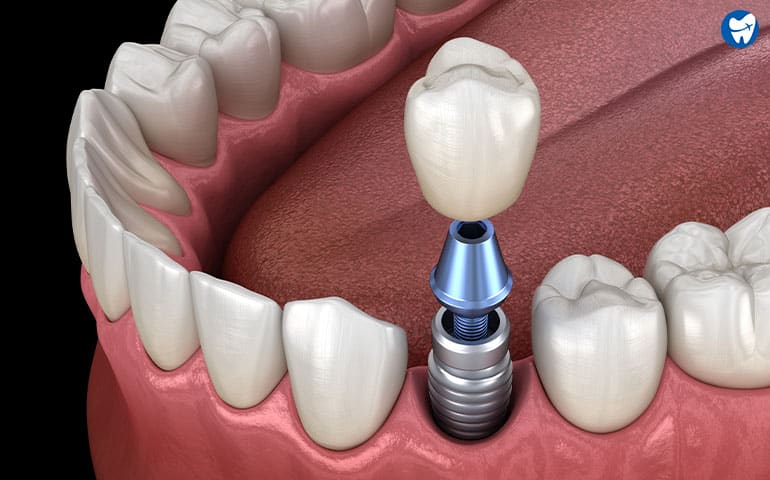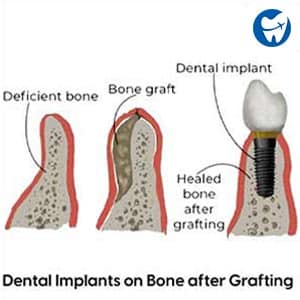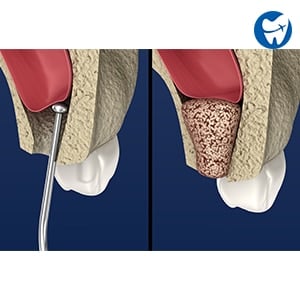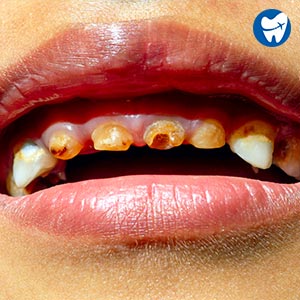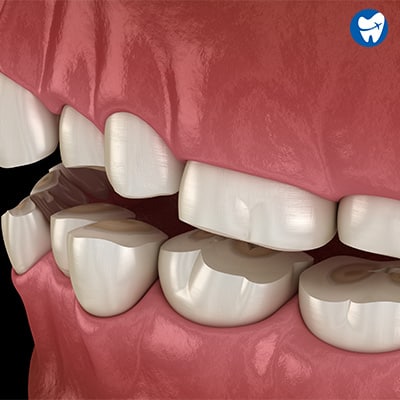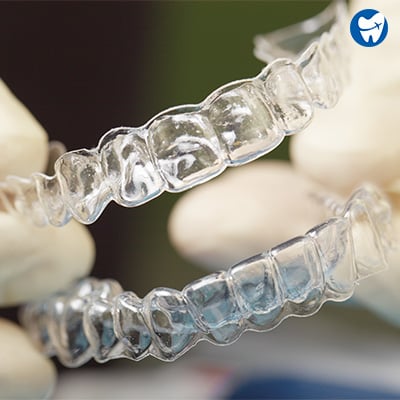Dental implants are the most advanced option for replacing your missing teeth. However, they are not ideal for everyone. There are various contraindications for dental implants.
Contraindications to Dental Implants. Video Courtesy: Dentist Practitioners In Memphis TN
Some can be modified; however, some are absolute contraindications to dental implant placement.
To ensure implant success, understanding these contraindications is essential.
After careful evaluation of your health and underlying medical conditions, a skilled dentist can advise if a dental implant is the right choice for you.
But it is equally crucial for you to understand them. So, let’s discuss them in detail.
What Are Some of the Contraindications for Dental Implants?
Dental implant placement is an extensive procedure where your oral anatomy, healing capacity, bone health, and the chances of any potential trauma are analyzed beforehand.
Any underlying medical conditions are also evaluated to ensure safety and success.
Sometimes that can be an obstruction in placing implants. When that happens, they are termed as contraindications. They can be either absolute or relative
Dental Implant
In absolute contraindications, the surgical procedure can lead to adverse health complications.
However, in relative contraindications, implants can be surgically placed after adequate treatment of the underlying conditions.
Though dental implants have a success rate of 99%, below mentioned contraindications for dental implants increase the risk of failure. [1]
Local Causes
There can be abnormal anatomical structure or pathological conditions obstructing the placement of the implant. These serve as local contraindications.
These conditions are often evaluated and resolved before the implant placement:
1. Low Bone Density
What happens
Jawbones do not provide enough support for the implant.
Treatment modalities
Bone grafting and sinus lifting [2] are done to increase the bone.
2. Anatomical Structures Are in the Implant Area
Bone graft
What happens
Certain anatomical structures can interfere with implant placement.
Sinus lift
Treatment modalities
Surgeries like sinus lifts are done to increase the amount of bone.
3. Local Pathological Conditions
Gingival recession
What happens
These conditions lead to receding gums and jaw bone damage, affecting the implant stability.
Tooth caries
Treatment modalities
Professional cleaning and additional dental work are done before implant surgery.
4. Bruxism
Bruxism
What happens
Excessive occlusal load loosens screw or fractures the implant.
Mouthguard
Treatment modalities
Teeth grinding (bruxism) is treated using a mouthguard and splint.
5. Smoking
What happens
Smoking reduces blood flow to your jaw bone, resulting in delayed healing and even implant failure. [3]
Treatment modalities
You will be advised to stop smoking before surgery & remain smoke free during the healing period.
An experienced dentist can work around such contraindications. However, being informed about your condition and the expected success rate is essential.
Your willingness to follow your dentist’s instructions also defines the success rate, for example, in conditions like smoking and poor oral hygiene.
Relative Contraindications for Dental Implants
Sometimes, dental implants can only be placed after initial treatment.
Additionally, some precautions need to be followed during and after implant placement.
✅ Medical conditions like diabetes, cardiovascular disease, etc., need a more precautionary approach.
During these conditions, delayed healing and increased chances of implant failure are seen.
✅ The procedure is done with additional safety during any immunocompromised conditions.
A good immune response is needed during implant surgery.
✅ Anxiety/depression patients taking drugs like SSRIs are believed to have an increased risk of implant failure.
These patients require careful planning and treatment before implant surgery. [4]
✅ GERD patients taking PPIs experience frequent implant failure. [5] PPIs are believed to decrease the available nutrients needed for bone health.
Various underlying medical conditions require careful evaluation before implant surgery. It also depends on the decision of the specialist.
With some preliminary treatment and proper management, one can eliminate these contraindications.
Absolute Contraindications for Dental Implants
There are some conditions where dental implants are inadvisable. Dental implants are contraindicated in patients who have: [6]
- Bleeding disorders
- Immune deficiency conditions
- Psychiatric problems
- Pregnancy and lactation
- Conditions affecting the central and peripheral nervous system
- Osteoporosis
- Chronic diseases like TB, rheumatoid disease, cancer, etc.,
- Usage of drugs like bisphosphonate, blood-thinning medications, etc.,
These medical conditions are considered absolute contraindications for dental implants.
Based on proper medical evaluation and drug history, a skilled dentist can advise if a dental implant surgery can be considered or not.
List of Contraindications for Dental Implants
| Absolute | Relative | Local |
| Recent MI | Diabetes | Insufficient bone support |
| A CVA | Auto-immune diseases | Interfering anatomical structure |
| Immunosuppression | Alcohol dependency | Poor oral hygiene |
| Bleeding disorder | Tobacco consumption | Bruxism |
| Psychiatric illness | Pregnancy | Smoking |
| Drug abuse | GERD drugs | Local infection |
| Active cancer | Antidepressant drugs | Local disease |
Conclusion
Though dental implant surgery is not life-threatening, it can not be considered risk-free.
Like any other surgical procedure, it has its indications and contraindications.
After the preliminary examination, an implantologist will advise you about the possibility of placing a dental implant, the associated risk, and the expected success rate.
Few risk factors are modifiable, and along with a strict follow-up regime, dental implants can be successfully placed.
FAQ's
Dental implants are contraindicated in conditions like:
- Recent myocardial infarction
- Impaired immune system
- High risk of bleeding
- Mental illness
- A cerebrovascular accident
- Active cancer therapy
- Drug abuse
- IV bisphosphonate treatment
A proper medical examination is essential to understand the health risks associated with implant placement.
After a detailed evaluation, a skilled dentist can advise if a dental implant is suitable for you.
Anyone with healthy gums & sufficient bone can opt for a dental implant.
Only a few severe conditions are considered absolute contraindications for implants.
The success rate of the dental implant increases significantly if you are a non-smoker and have: [7]
- Good oral hygiene
- Healthy gums
- Bone support
- No underlying medical conditions
- A skilled dentist for treatment
Anxious about dental implant complications?
Talk to our dentists
